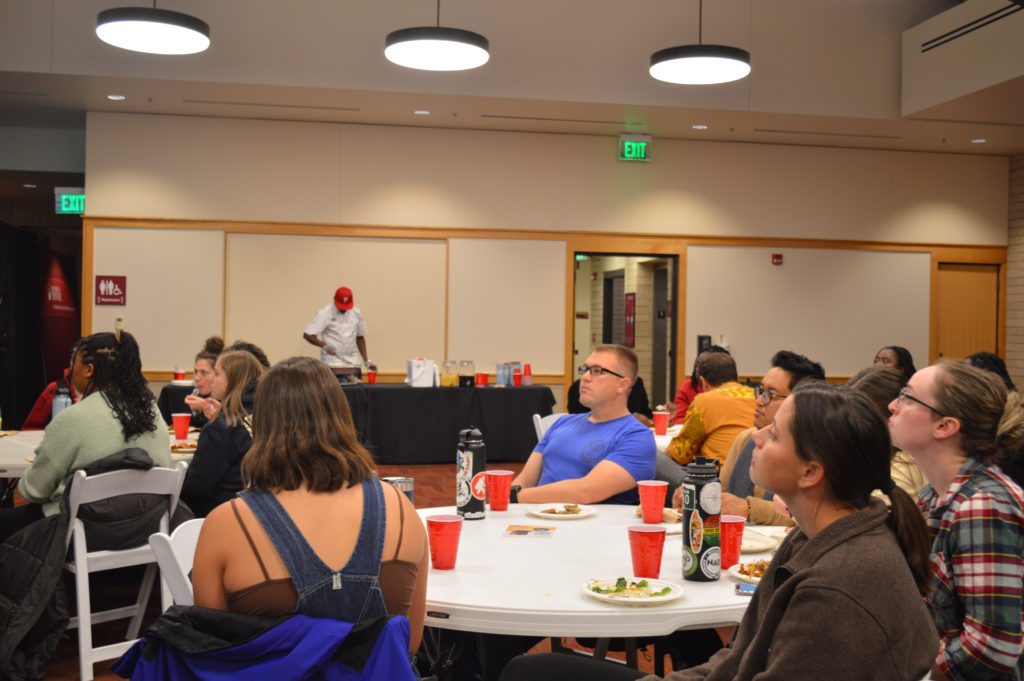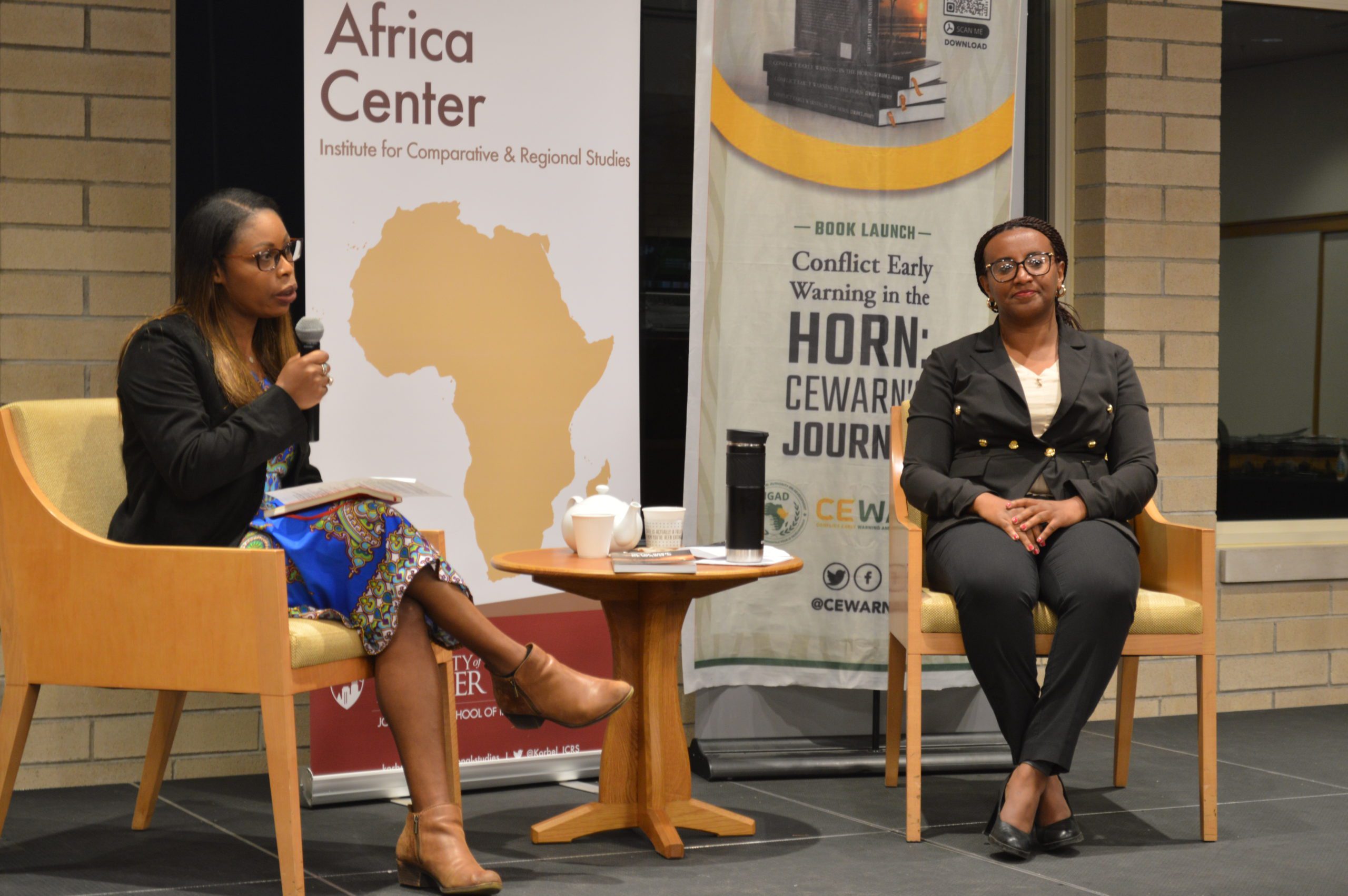
Students at the University of Denver’s Korbel School listen during a presentation about early warning systems for conflicts in the horn of Africa. Wednesday, November 9, 2022.
The number of conflicts in the world today, including those that are taking place in the African continent, remains a cause of concern to many.
Today the world has the largest number of conflicts since the Second World War. Some of these conflicts are not just in Africa. They include the conflicts in Ukraine. The cumulative impact of these crises, including climate change, drought, and COVID-19, has stretched global resources to the limit.
That’s according to Tigist Hailu, communications officer for the Addis Ababa, Ethiopia-based organization, CEWARN or Conflict Early Warning and Response Mechanism. CEWARN is a specialized agency of IGAD, an Inter-governmental Authority on Development.
Established in 1986, and headquartered in Djibouti, part of IGAD’s mission, she said, is to realize a vision of development and collective security through collaboration with each other.
Speaking to students and faculty at the Josef Korbel School of International Studies at the University of Denver (DU) on Wednesday, November 9, Hailu said the challenge of responding to the early warning systems and tools that CEWARN provides rests with African governments and leaders.
According to Hailu, CEWARN works collaboratively with member governments of IGAD in the horn of Africa. The governments include Ethiopia, Kenya, Uganda, Sudan, South Sudan, Somalia, and Djibouti. Eritrea is out there, but not an active member, according to Hailu.
“Right now, at least four of the seven countries are experiencing volatile political transitions, my own country Ethiopia included,” she said. “There has been a change of government in three of them. Somalia has just completed a tricky political election. Ethiopia had a change of government four years ago. South Sudan is emerging out of conflict”
The representative compared IGAD to a smaller version of the United Nations that is limited to just 7 member states. Even while there are challenges to deal with in the region, she said, what we see in the media is not the entire story of the region.
‘One story that you hear is not the whole story. There are always different sides to it,” she said. “Bad news can coexist with prosperity.”
Hailu cited the nation of Ethiopia as an example of some of the mega-development projects that continue, despite the challenges posed by the ongoing conflict in the Tigray region.
“The way you understand the problem determines how you conceive solutions for it,” she said.
In her presentation, she cited United Nations reports that she said support the idea of an early warning system for conflict mitigation and that make it a priority today. Hailu said the tools CEWARN provides are especially important now, more than ever before, because of the surge in threats and other security concerns in the horn of Africa.
The dinner discussion was part of a book launch that Hailu hoped would benefit students of African affairs and the public. The event lasted for an hour and was quickly followed by a Q&A session. The discussion was facilitated by visiting professor and director of DU’s Africa Center, Abigail Kabandula.

